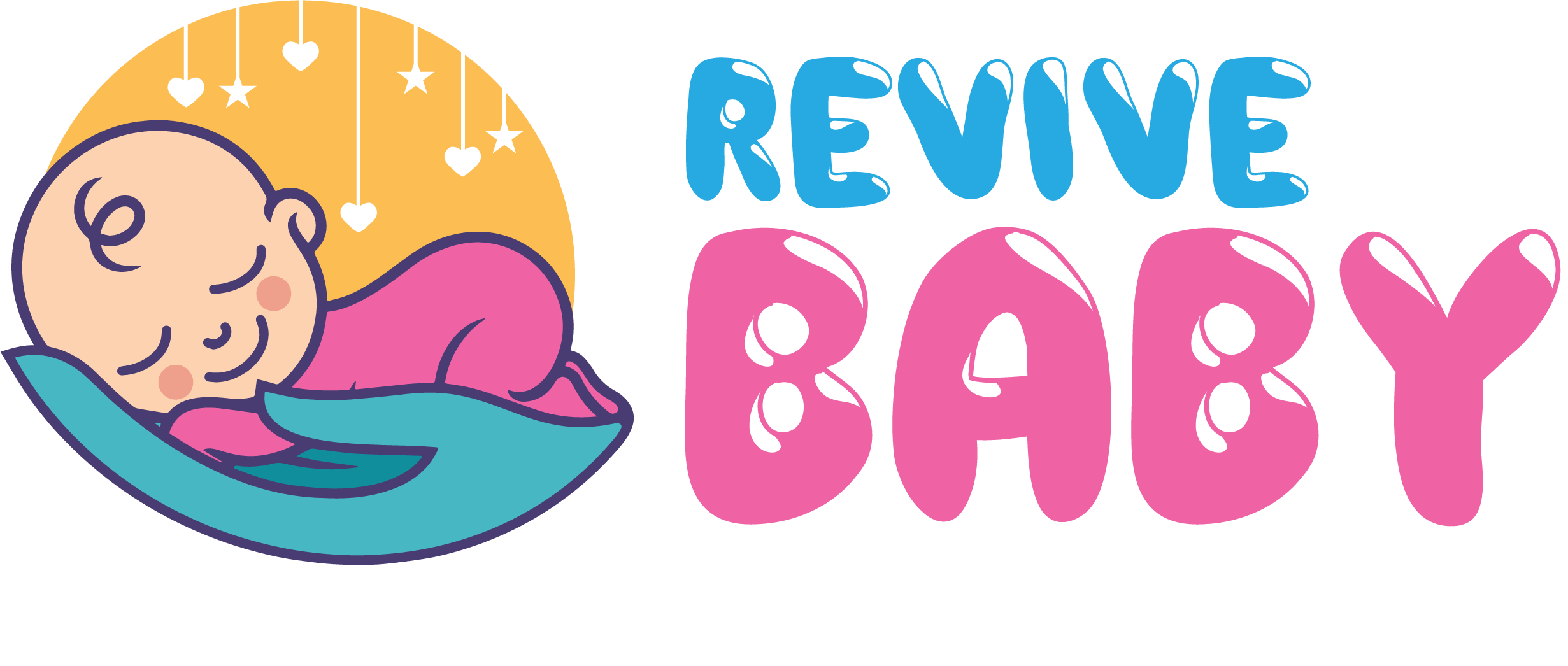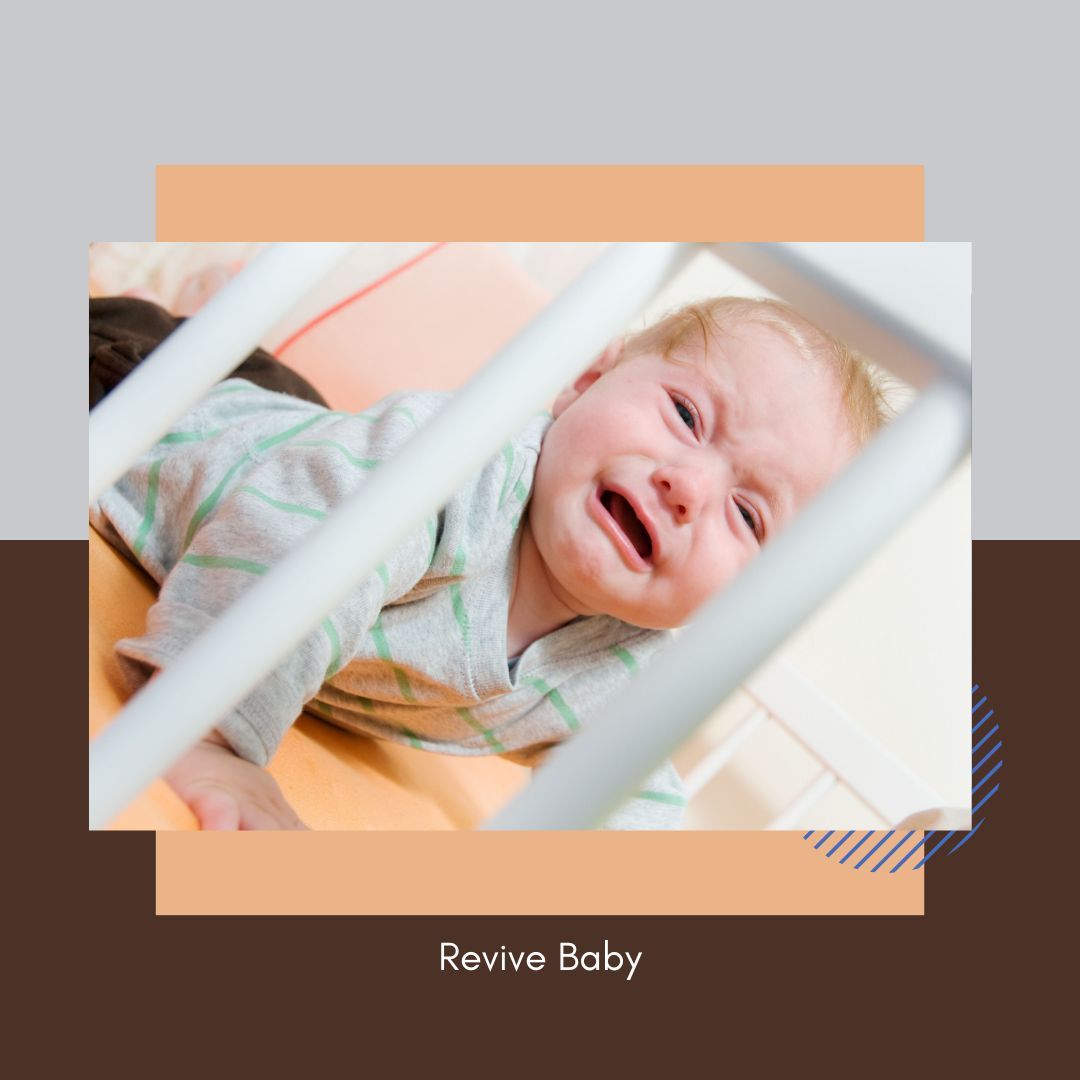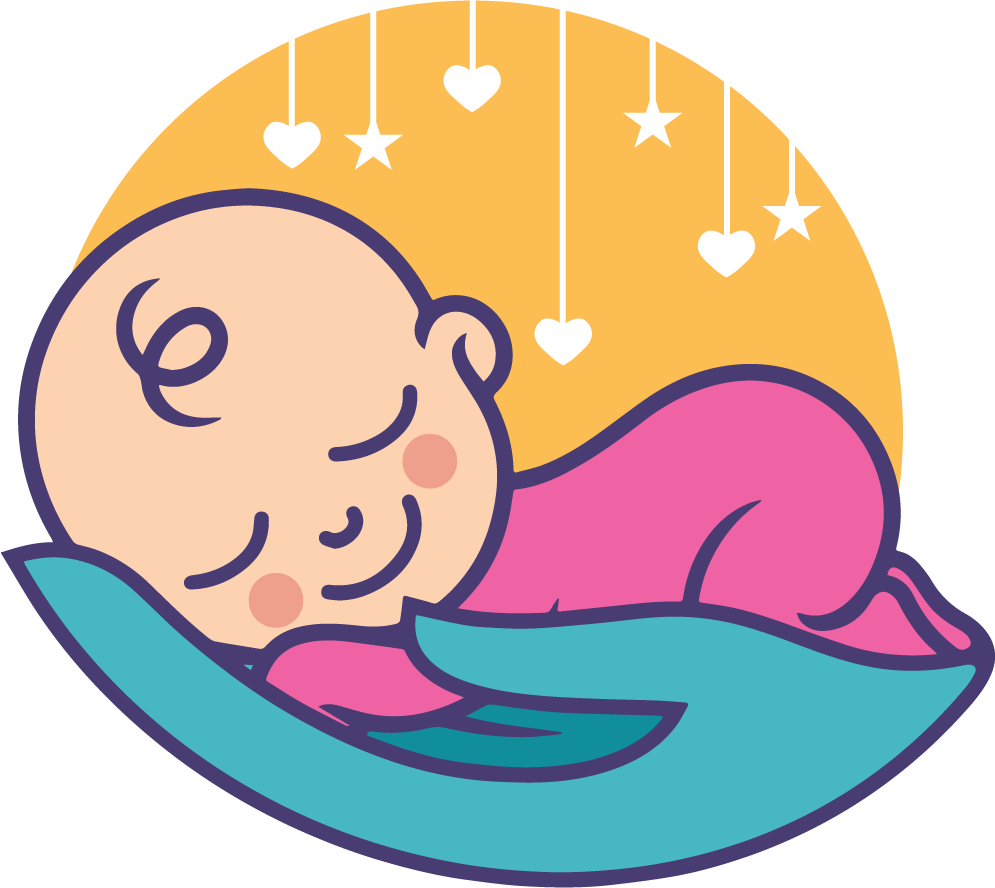One way to help your baby get more restful sleep is by using the E.A.S.Y. routine.
Why Does Baby Wake Up Crying From Nap After 30 Minutes?
If your baby wakes up crying from a nap after 30 minutes, he may be overtired. Your baby's naps are designed to last between one and two hours, so if he's awake for less than an hour, he probably needs more sleep.
But it can be difficult to tell when your baby is tired. Here are some signs that your baby is overtired:
- Baby is fussy during the day or wakes up multiple times each night.
- You notice your baby sleeping more than usual during the day or night.
- Your baby can't keep up with his activities, such as playing with toys or crawling on the floor.
E.A.S.Y Routine Cause Your Baby Nap Better
This stands for Eat, Activity, Sleep, and Young children who follow this routine have better sleep patterns and fewer problems with naps and bedtime. Here's how it works:
Eat: Feed your baby before taking a nap. This is only sometimes possible if you're at work or in another situation where you can't feed your baby right away but try to do it as often as possible because it will help your child get more sleep and feel better overall.
Activity: Make sure your child has had some physical activity within an hour of taking a nap. This could be going for a walk outside or playing with them on the floor with musical toys or something similar - anything that gets them moving!
Sleep: Once you've done all three steps, it's time to lie down and nap! Try only to disturb them once they're fully asleep (which should take 15-20 minutes).
Oxygen May Cause Your Baby Wake Up Crying From Nap After 30 Minutes
Babies are likelier to wake up crying from a nap after 30 minutes if they are not getting enough oxygen.
When awake, a baby takes in air through his nose and mouth. He then breathes out through his nose, mouth, and skin.
When babies sleep, they breathe less than when they are awake. This means they breathe less CO2 because they do not need as much oxygen. When this happens, the level of CO2 in the blood increases too high, and this causes a condition called respiratory acidosis — where there is too much acid in the blood (acidosis).
Respiratory acidosis may occur with other causes (such as infections or problems with lung function), but it can also happen when a baby does not get enough oxygen during sleep.
The Goal Is To Get Baby at least 30 Minutes Nap
The goal is to get your baby to nap for at least 30 minutes at a time.
Naps lasting for less than 30 minutes are insufficient to help develop your baby's daytime sleep cycle.
Babies under 6 months old will probably take naps for at most one hour. They need a lot of sleep, so they can only stay up a little during the day, but they also don't have much control over their sleep cycles. A 45-minute nap is usually more appropriate for babies this age.
From 6 months old on, most babies will be able to stay awake longer during the day and should be able to take two naps each day — one in the morning and one in the afternoon or early evening.
Biggest Myth About Short Naps
The biggest myth about short naps is that they're a bad thing.
Short Sleep is Never Harmful
Some people believe that babies and children should never nap for less than an hour, but the fact is that a short sleep will not harm your child in any way. It could make them more alert afterward.
Taking Short Naps Should Be Groggy
If your baby wakes up crying from a nap, there's nothing wrong with that. It's perfectly normal for babies to wake up briefly during the night and go back to sleep quickly, so if this happens during the day, it's no big deal.
If your child is awake for less than an hour after their nap, they may still be tired or groggy when they wake up. This can lead to crying out of frustration or confusion (especially if they've just been put down).
But again, as long as they're not crying excessively or inconsolably every time they wake up from a nap, there's nothing to worry about here, either.
Experts Believe Upon Brief Awakenings Are Good
Some experts believe brief awakenings are good for babies because they allow them to practice regulating their sleep cycles without depending on someone else's schedule or presence.
Child Might Be Discomfort With New Position
If your child wakes up crying after 30 minutes but has been sleeping longer than that recently (or will sleep longer later), then it's likely that something else is causing them discomfort while they're trying to sleep.
Children often don't like being placed in new positions (swaddled in one direction versus another), moved around by parents or other caregivers, or left alone, even briefly.
Child Might Be Crying For Dirty Diaper
If your baby is not hungry or tired, consider placing him back in his crib with a pacifier or toy. If he continues to cry, check his diaper and try again in five minutes.
If he has a dirty diaper and is ready to change, cleans him up and try again. If he is still upset after 10 minutes of trying different techniques, pick him up and try soothing him close by your side until he falls asleep.
Children May Start Crying Due To Placing Here And There
If your child wakes up crying from a nap after 30 minutes but has been sleeping longer than that recently (or will sleep longer later), then it's likely that something else is causing them discomfort while they're trying to sleep.
Children often don't like being placed in new positions (swaddled in one direction versus another), moved around by parents or other caregivers, or left alone, even briefly.
What To Do If Child Is Crying After Nap
- Try giving your child extra minutes of fussing before moving them. If they start crying again when you do so, they're not just upset that they woke up but are also unhappy with the new position or environment.
- If you suspect your child has become accustomed to a particular position while swaddled and might miss that feeling if it's changed, try repositioning them before placing them down for another nap.
- Finally, if you have more than one child who has been napping well together but now seems unhappy about napping separately and together, then consider whether it might be time for both children to start taking separate naps at different times from each other.
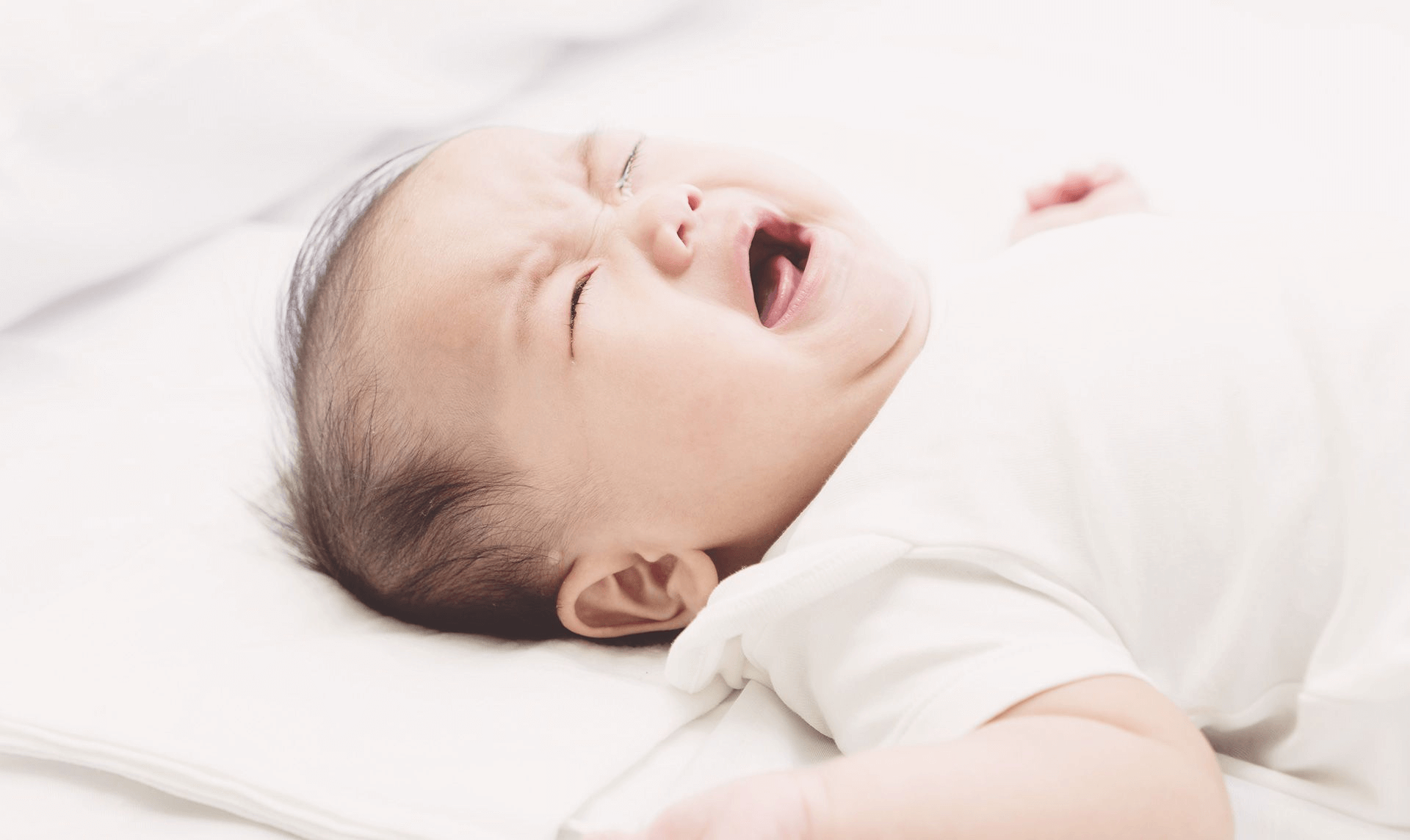
Adjust For The Right Amount Of Naps By Age
The best way to adjust for the right amount of naps by age is to keep a sleep diary. Use this chart to record how long your baby sleeps at each nap.
Age Naps per day Total sleep time per day
Reasons For Short Naps
Most babies need two naps, but some babies nap for less than an hour in the morning and one in the afternoon. This is normal. If you have a baby who has always been a short napper and doesn't like it, try accepting it as part of their personality.
Your Baby May Be Hungry
If your baby is over 6 months, the most common cause of short naps is hunger. If you have been breastfeeding or formula-feeding your baby and have recently stopped, this may be why they have been waking up early from naps. Try giving your child a small snack before putting them down for a nap.
Your Baby May Need More Stimulation
If your child gets plenty of stimulation during the day (from playing outside or at home), that can sometimes lead to shorter than normal naps at night. As long as there are no other issues with sleep (such as teething pain), try giving your child more stimulation during the day to keep them awake longer at night when it's time for bed.

Your Baby May Have A Wet Diaper
If you've changed your baby before putting her down for a nap, but she still wakes up with a wet diaper, check her temperature — she may have an ear infection. Ear infections are more common in infants than older children because their Eustachian tubes haven't fully developed yet and can become blocked easily by fluid or mucus accumulating in the middle ear.
For this reason, infants often get ear infections after exposure to smoke or other irritants (for example, going outside on a very cold day).
Your Baby May Have A Cold Or The Flu

If your baby wakes up crying after napping and seems to have trouble breathing, it may have a cold or the flu.
If your baby has been coughing, sneezing, or has a runny nose and watery eyes for at least three days, they could have one of these illnesses.
If your baby is under 2 months old and has no other symptoms besides breathing difficulties and a fever (over 100.4°F), call your doctor immediately for advice (see below).
Your Baby May Have Had A Bad Dream
Sometimes babies will wake up crying because they had a bad dream. Try to comfort your little one by talking gently to him and soothing him back to sleep if possible.
If he doesn't fall back asleep easily, try rocking him or walking around with him until he relaxes again (this sometimes helps even when they're not having nightmares).
Your Baby Might Be Feeling Too Hot
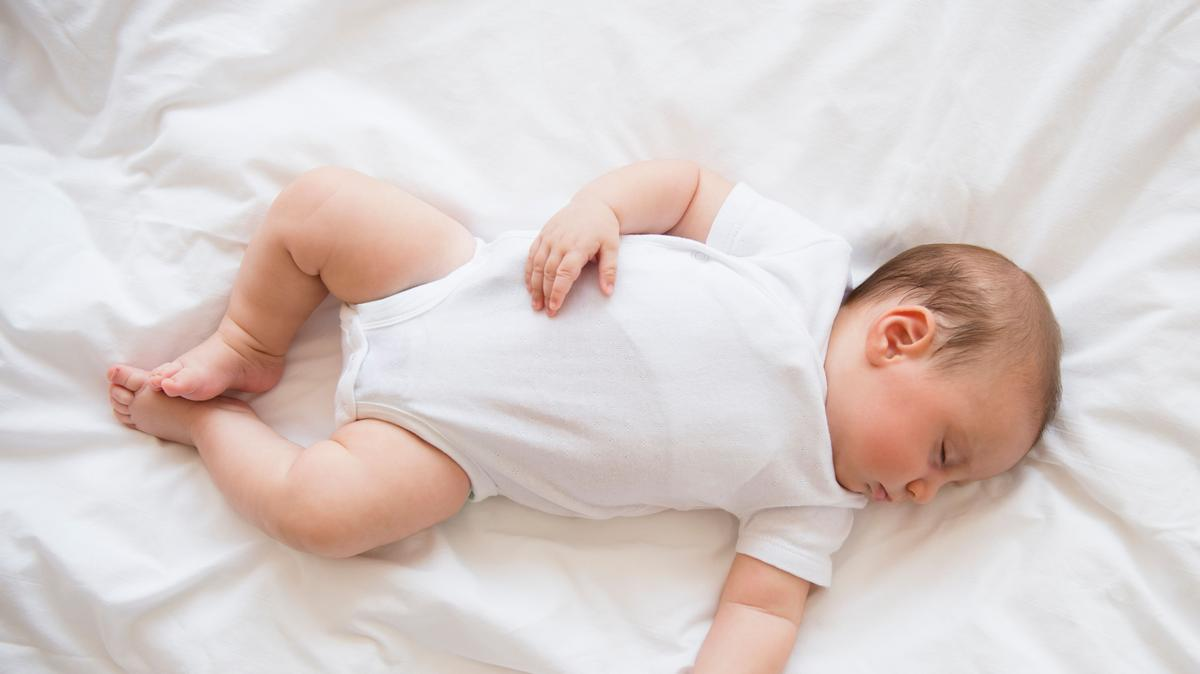
If your baby wakes up from naps in a bad mood and crying, it might feel too hot. If so, you'll need to adjust their bedding or clothing. The best way to do this is to ensure your baby wears only a few layers of clothes at night.
When they're sleeping, they don't need extra padding on their body — all they need is their diaper and pajamas. If you find that your baby is waking up because they're too hot while they're sleeping, remove some layers of clothing at night so that they feel comfortable enough to sleep through the night.
Your Baby Needs To Fall Back Asleep On Its Own
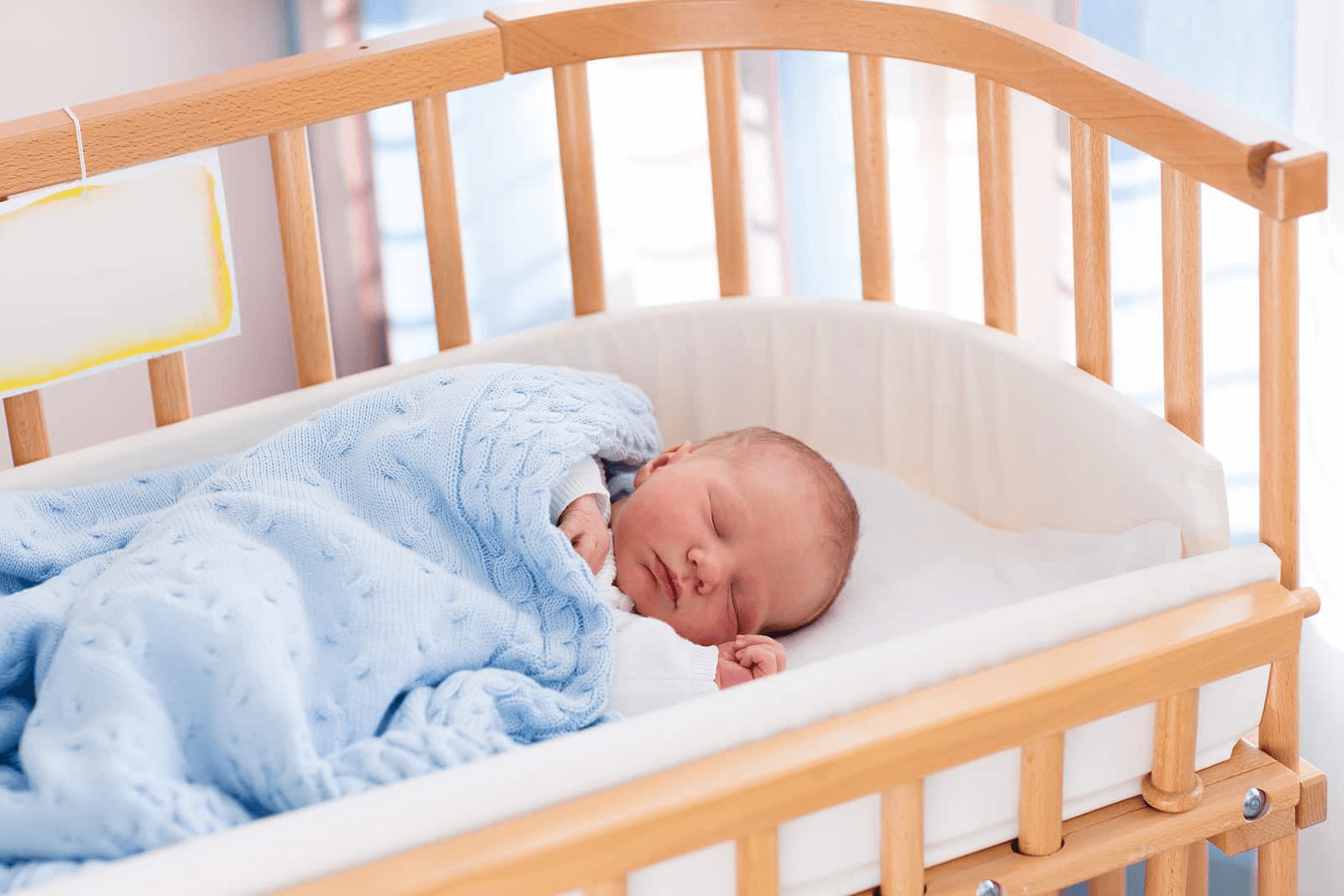
Your baby needs to learn how to fall asleep on his own again. This is because, in the womb, your baby never learned how to fall asleep without being rocked or fed by mom or dad. But once he leaves the womb and has a good start at home with plenty of loving caregivers all day, he'll learn how to soothe himself back into slumber without much work from anyone else! If he gets lots of help falling asleep and then waking up again in 30 minutes, it's hard for him to figure out what to do next. He needs time and space to figure out how to soothe himself back into slumber.
Many parents don't know how to teach babies to self-settle, and many don't know anything about sleeping. Read our guide about it.
Sleep Cycle
She needs full sleep cycles. The average newborn sleep about two hours at a time, called a "sleep cycle." When she wakes up before finishing a full cycle (like after 30 minutes), she may be too tired to fall asleep independently.
Our Final Thoughts
The only way to fix this is to stop your baby from crying before that 30-minute mark. It might be as easy for some babies as burping, rocking, or walking them before trying again. It might be more complex for others, involving certain behaviors and temperament that you must try to identify first.
You may also like to read an important guide about how do babies get meningitis.
